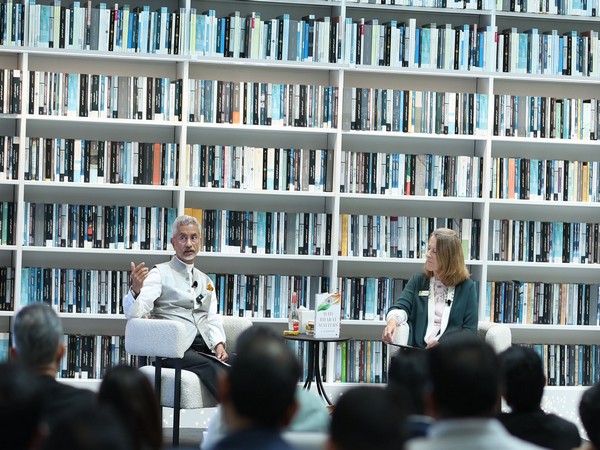External Affairs Minister at the launch of his book ‘Why Bharat Matters’ in Dubai on Thursday said that he used the word ‘Bharat’ because it gives a more representative picture of the country.
Jaishankar also said that the US and China are like two characters of a book who play a major role in changing the world.
In a post on X, he said, “Participated in an interactive session at Mohammed Bin Rashid Library, Dubai for the book launch of Why Bharat Matters. Spoke about grasping the global transformation underway and understanding the rise of Bharat.”
Jaishankar shared that while his first book was titled ‘The India Way’, he chose the term ‘Bharat’ for his second book to capture the authentic voice and spirit of a changing Indian society.
He noted that Prime Minister Narendra Modi embodies this representation, living as a symbol of India’s diverse and vibrant political landscape.
“My first book was called The India Way, and the Second book is called Why Bharat Matters. Often a question I get is, and I am answering it in advance, why am I using the word ‘Bharat’ and not ‘India’, is because of this, a more authentic representation and articulation of society, and in many ways PM Modi himself is very representative of all of this,” he said.
Jaishankar also said that the message that he intends to send through the book is that in this changing scenario of the world, one must think through all the inherited world views because they may be biased.
“The message of my book is that we need to think through the problems, challenges and opportunities for ourselves. We should take preferred or inherited wisdom carefully. They’re often loaded with particular agenda or biased,” he said.
Jaishankar said that the US and China are major countries altering the world.
“Then you have two countries that keep coming up like major characters in a book. No surprise, one is the US and the other is China. The US is an interesting character because it is redefining how it relates to the rest of the world and how the rest of the world perceives it. China, the other character, is rising, pushing and testing limits in different ways. So you have a changing world and these characters,” he said.
Talking about his experience of over four decades in the industry, Jaishankar said that the world is changing and he wanted to share how so. He said that often countries deploy checks and balances to keep country from going off the rails.
“I felt that after above little more than 40 years in diplomacy, I was looking at a world that was changing very profoundly and I had a sense that not everyone was getting it. So, in a sense, both this book, and another that I wrote a few years before, were an attempt to try to share my understanding of what was changing, but with a certain objective which was really to say, in this changing world, how can India get the best of it, how do we really make the best use of it. When we speak about the changing world, I have laid out different aspects of it. Re-globalisation, in a way, since the old globalisation is not working, so something else is being done, the re-balancing, which is the weight of different countries, the relative weight of countries vis-a-vis each other, how that is changing, and therefore how relationships change. Increasingly, the de-risking of the international economies, almost the global order, which is facing so many challenges, so the countries often gear their diplomacy to make sure that things do not go completely off the rails,” he said.
Jaishankar added that in this scenario, even India is changing because of these external factors.
“The world is more nationalistic now, insular, and self-centred, in a way. There are changes in the way of life now, given the rise of technology and AI. Relationships are changing now. India is changing partly because of all of this, and autonomously also,” he said.-ANI


